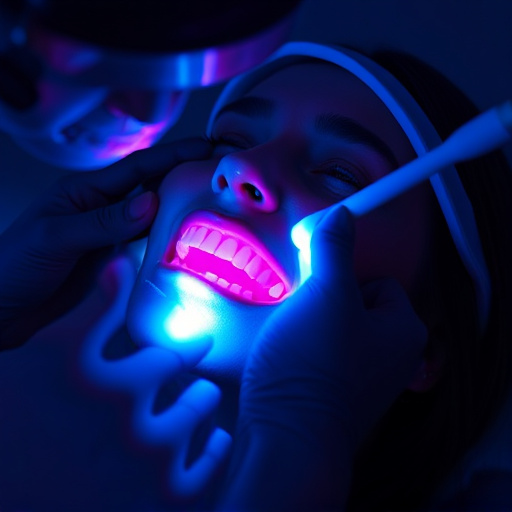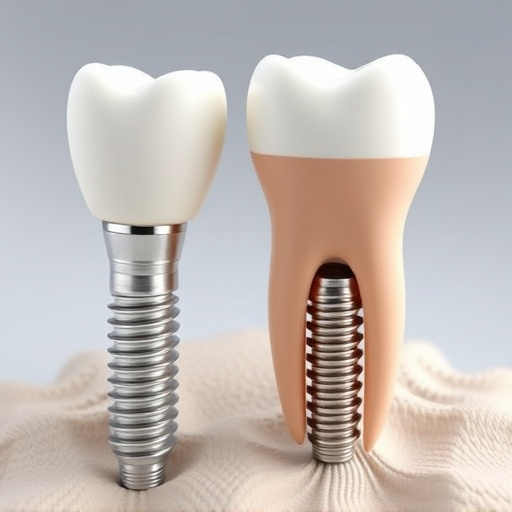Oral health assessment is crucial for managing chronic conditions like diabetes and heart disease. Regular dental check-ups detect issues early, improving patient outcomes. Integrating oral care into routine treatment plans enhances overall wellness, prevents complications, and improves quality of life for patients with chronic diseases.
Oral health assessment is an often-overlooked component of chronic disease management, yet it plays a crucial role in overall patient wellbeing. This article explores the significant benefits of incorporating detailed oral health evaluations into routine care for patients with chronic conditions. From improving systemic health to enhancing quality of life, integrating oral health assessments can lead to more effective, tailored treatment plans. Understanding these connections is essential for healthcare professionals aiming to holistically support their patients.
- Oral Health Assessment: A Crucial Unseen Aspect of Chronic Care
- Benefits Beyond Teeth: Impact on Overall Patient Wellbeing
- Tailoring Treatments: Integrating Oral Health in Chronic Conditions Management
Oral Health Assessment: A Crucial Unseen Aspect of Chronic Care

Oral health assessment is an often overlooked yet crucial component of chronic care management. In patients with conditions like diabetes, heart disease, or respiratory disorders, maintaining good oral hygiene and overall mouth health can significantly impact their overall well-being. These invisible issues can have profound effects on a patient’s quality of life and must be addressed as part of comprehensive healthcare planning. Regular dental check-ups, including routine oral exams and advanced diagnostic tools, enable dentists to detect early signs of periodontal disease, oral cancer, or other mouth-related problems that could complicate their existing chronic conditions.
Early intervention through oral health assessment can lead to better patient outcomes. For instance, patients with diabetes are at a higher risk for gum disease; regular dental care involving clear aligners adjustments and deep cleaning can help manage this complication. Similarly, family dentistry professionals can identify dry mouth or tooth decay issues that might be exacerbated by medications taken for chronic conditions. By integrating oral health assessment into standard routine oral exams, healthcare providers can ensure that patients with chronic diseases receive holistic care, promoting better health outcomes and improved quality of life.
Benefits Beyond Teeth: Impact on Overall Patient Wellbeing

Oral health assessment goes beyond ensuring healthy teeth and gums. It is a crucial component of overall patient wellbeing, especially for individuals living with chronic conditions. Regular oral exams can reveal signs of systemic issues that might otherwise go unnoticed. For example, gum disease has been linked to heart disease, diabetes, and respiratory problems. By identifying these connections early through comprehensive oral health assessments, patients and their healthcare providers can take proactive measures to manage these chronic conditions more effectively.
Moreover, maintaining good oral hygiene contributes to overall systemic health. Preventive dentistry practices like regular brushing, flossing, and dental check-ups help ward off tooth decay and infections. In cases where extractions become necessary, general dentistry interventions ensure that the loss of teeth does not negatively impact a patient’s quality of life. By addressing oral health proactively, patients can experience improved nutrition, better sleep, and enhanced overall well-being.
Tailoring Treatments: Integrating Oral Health in Chronic Conditions Management

Oral health assessment plays a pivotal role in managing chronic conditions, offering tailored treatments that integrate oral care into overall health management. By integrating dental wellness with medical well-being, healthcare providers can address the complex interplay between systemic diseases and oral health issues. For instance, patients with diabetes are at a higher risk of gum disease; thus, a comprehensive assessment may include regular dental cleanings and education on glycemic control to mitigate these risks.
Similarly, for conditions like cardiovascular disease or arthritis, specific treatments can be recommended. Clear aligners or dental fillings might be suggested as part of a holistic approach to managing pain and improving oral function. This personalized care ensures that patients with chronic conditions receive not just symptom relief but also long-term solutions that enhance their overall quality of life.
An oral health assessment is a vital component often overlooked in chronic condition management. By integrating this crucial unseen aspect into patient care, healthcare professionals can achieve significant improvements in overall wellbeing. Recognizing the impact of oral health on systemic conditions empowers tailored treatment plans, ensuring patients receive comprehensive and effective care. This holistic approach to medicine benefits both body and mind, leading to improved quality of life for those living with chronic illnesses.














